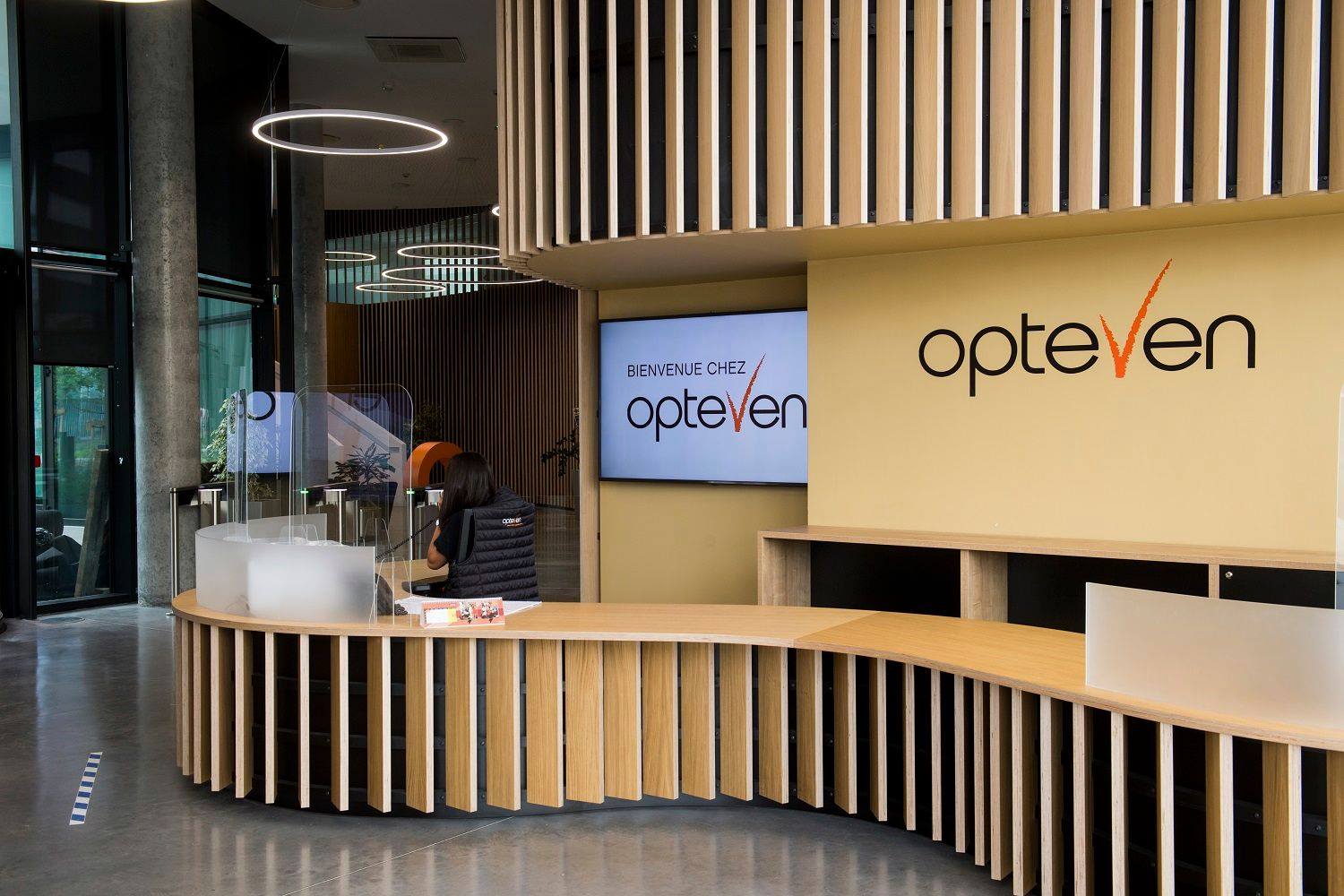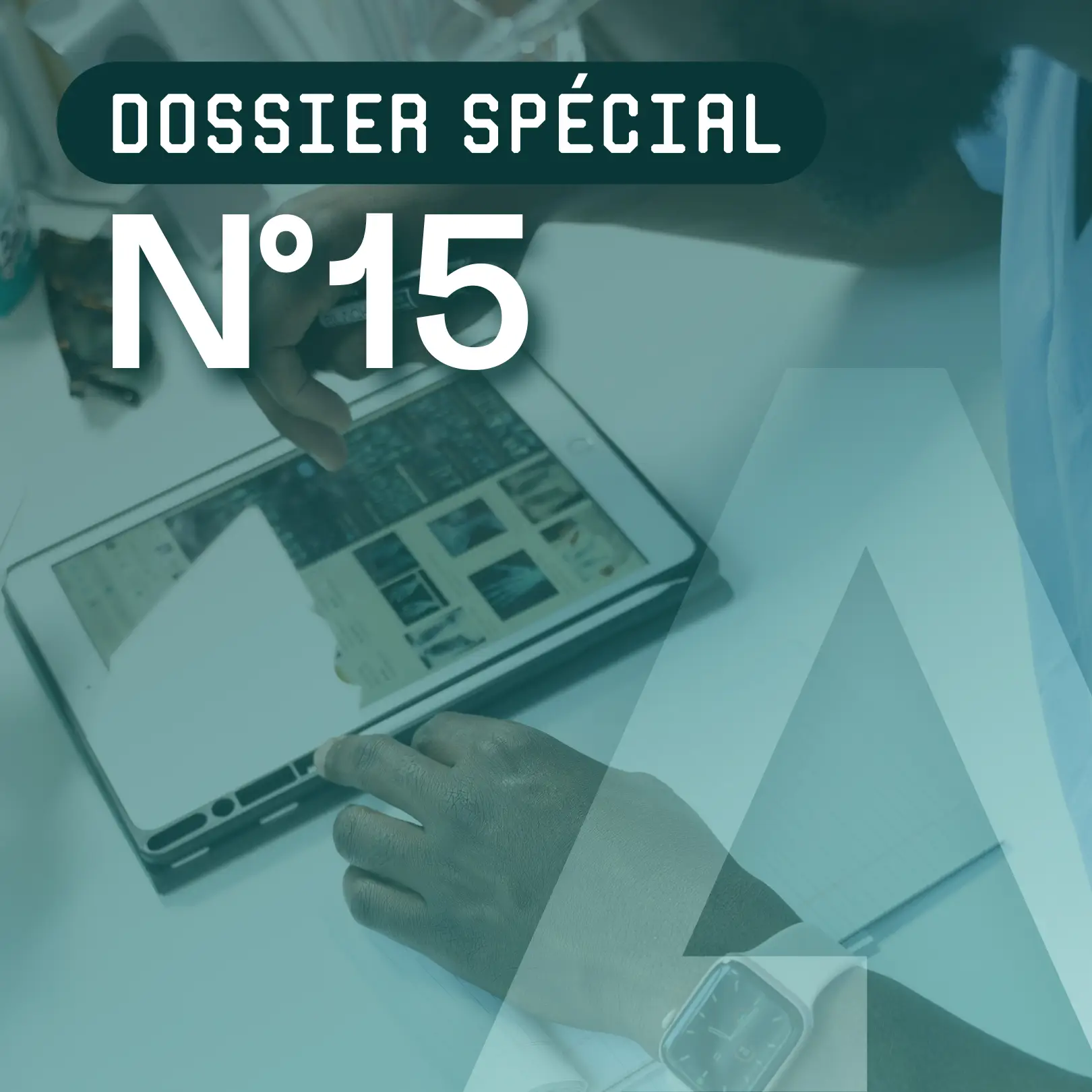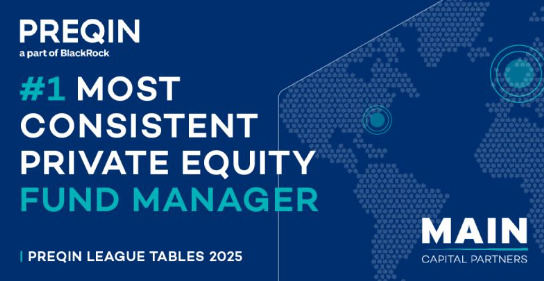Damien Helene: What do you think the hospital of tomorrow will look like? We're obviously talking about data analysis, the acquisition of high-tech equipment, a more patient-centric approach, and the rise of ambulatory care.
Cathrin Petty: I believe that tomorrow's hospitals will undoubtedly be supported by technology. Managing the flow of patients through the hospital, both inpatient and outpatient, and connecting them to their full lifecycle, will be essential.
At the same time, it will be vital to manage the hospitals' workflow. At the heart of this are upstream triage and diagnostic centers. I think you're going to see these diagnostic centers become more and more important because of the speed with which patients will be diagnosed, triaged and then directed to different sections of the hospital.
The only way to manage the increasing demands on our healthcare services is to use technology to get answers faster. I believe we will have electronic patient records at the heart of the system. That's one of the reasons we've invested heavily in this area.
I think you'll also see that workflow management will be a central element. Then, I think you'll start to see predictive interventions over time. We'll see AI recommending and advising doctors that a patient should now either have a second diagnosis, or have a biopsy to confirm something, and then be directed to the right channel of care. I think this will create a lot more patient pathways. I hope that the management of these patient pathways will begin to evolve at a steady pace, enabling us to diagnose, treat and intervene more rapidly. This, in turn, should lead to better preventive care, while relieving much of the pressure on the hospital workforce. And this is one of the challenges we face today in terms of recruiting talent to support this aging population.
Damien Helene: Why does CVC invest so heavily in the healthcare sector?
Cathrin Petty : One of the reasons is that it's one of the fastest-growing sectors in the world. You're seeing very strong growth both in developed markets, with an ageing population, but also with the rise of chronic diseases, obesity, diabetes, which are major drivers of this growth, as well as cardiovascular disease and so on. But also, in emerging markets, you see that as people gain access to greater wealth and better education, healthcare becomes a priority as part of this evolution. People will increasingly pay out of pocket in these markets for access to better healthcare, even before governments provide solutions.
Firstly, it's a highly resilient sector.
Secondly, it has very strong underlying growth trends. T
Thirdly, today, around 25% of the private equity market is devoted to healthcare. This is the case in the United States, and in Europe it's around 20%, with stable growth in the high single digits. Finally, you are also witnessing the convergence of technology and healthcare. I think this will offer exciting opportunities over the next 20 years, both for the development and identification of new drugs, and for patient management, right through to the end of care.
I don't think we'll be able to manage demand without using technology in different ways. And the healthcare sector has been very slow to adopt technology, partly because of regulation, protection and cybersecurity requirements. But creating this data in a safe and secure environment will enable us to use it throughout the value chain created. And that opens up increasingly interesting opportunities.
Damien Helene: Is the hospital of tomorrow seen as the main driver for private equity players?
Cathrin Petty: I think hospitals will continue to play an important role in the healthcare investment ecosystem, but I think you'll see accelerating growth in ambulatory care, whether it's primary care delivery, diagnostic centers or ambulatory care delivery for areas ranging from ophthalmology to IVF.
There are many situations where patients benefit from better and more effective treatment in an outpatient setting rather than in hospital. For example, when treating cataracts, you can see a saving of around 30% by performing the procedure on an outpatient basis, as you don't have all the fixed costs of a hospital. But probably more importantly, you have a much higher patient throughput rate.
You can sometimes treat three or four times as many patients a day in a dedicated outpatient ophthalmology room as in a hospital operating theatre, provided you can change patients regularly.
Damien Helene: What trends do you see emerging? For example, the shift from traditional cardiac surgery to minimally invasive procedures with shorter operating times.
Cathrin Petty : I think there's a growing demand for medicine to be as minimally invasive and localized as possible. This includes everything from tailored radiotherapy to treat prostate cancer to minimally invasive cardiac surgery, which I think will continue to grow. Sometimes it's necessary, if you're doing a heart transplant, to do a full surgery, and recovery from that will be important. Even then, you see huge innovations. One of the areas in which we have invested is the latest-generation heart-lung machine technology, which supports the patient during open heart surgery. This technology, performed in a hyperbaric environment, reduces blood clotting, reduces the incidence of memory loss and the recovery problems often encountered in cardiac surgery, meaning that, although in a hospital setting, patients are usually discharged several days earlier, as the procedure itself is less complicated thanks to the reduction in embolism-related side effects with these technologies.
I think you're going to see a reduction in hospital stays, which is generally better for the patient. But we'll also need more rehabilitation facilities, so that patients can move away from the intensity of hospital services towards recovery and rehabilitation care, with nursing staff and accompanied by physiotherapists.
Damien Helene: What are your recommendations and expertise for making healthcare more accessible and efficient for patients?
Cathrin Petty: I believe that everyone has the right to access healthcare. And I think there's more and more of a "consumerization" of healthcare, where people are becoming more educated and demanding about the services they expect. I think we need to encourage that, because you can't expect a doctor to have all the answers. The best people to diagnose a situation are often the patients themselves, saying "I think it might be this problem". Providing them with access to well-selected information, and not just Google searches which can be a source of misinformation, seems essential to me.
I think the ability to choose where you have your diagnosis or treatment is important. It's about both convenience and choosing the optimal environment and the right solution in certain markets, with elements of co-payment. It's a very important thing. In one of our companies, like Mehiläinen, the patient has an app that allows them to track both their insurance payments and their medical records, so they can choose where they want to go for the best surgeries, treatments and solutions.
Damien Helene: How can we generate financial returns while contributing to the modernization of the global healthcare system?
Cathrin Petty: It's extremely important that people are incentivized to succeed in healthcare, because when you look at many not-for-profit systems, they're broken. For example, if we look at the NHS (the UK's public health system), we see that it's unable to provide the services that are being demanded of it today, whereas if you want to have state-of-the-art oncology treatment or heart surgery or whatever, you can get incredible care in a private setting.
I think we need to think about how we make this accessible to everyone: how much is state-funded, how much is co-financed by patients, and how to organize insurance and payment plans. What's really interesting about the healthcare sector is that the majority of people who work in it are highly motivated by the goal. That's a huge motivating factor. It's not that financial success isn't part of it, but most people who work in pharmaceuticals or medical technology, for example, are entirely patient-centric. "What's the best product? How can I get a product to market to treat an important unmet need?" In the field of rare diseases, nobody would do it, and governments wouldn't invest in rare diseases, because, by definition, they're rare. Epidemiologically, they affect only a small proportion of the population, and therefore don't justify a return on government investment.
Whereas in our portfolio, we have a pharmaceutical company that invests in rare diseases, saving tens of thousands of children who would otherwise go untreated and uncared for. You can create a great company that invests in great products, that generate good returns for investors, but probably more importantly, that save lives. And that's incredibly gratifying, and I think it benefits society too.
Louis Flamand: And what about AI transforming hospitals? Is it coming tomorrow, or do you think it will take another decade?
Cathrin Petty: I think it's already happening now. There are several fascinating books and articles exploring the impact of AI in medicine. One of the things you'll quickly see in hospitals is how AI will help support doctors in conducting diagnoses and making decisions.
The technology will have to be clinically supervised. But, for example, a patient arrives with what could be a very rare infection, something like West Nile virus, which is seen in only one in 100,000 people in the United States. This patient presents with the following symptoms. Doctors and caregivers don't know what it is. You perform a series of blood tests that show inflammatory markers. You type or tell the AI, and it provides you with a summary of this information and suggests the following tests.
You're already starting to see real-time testing, especially in the US. Hospital systems like Advent Health and Tampa General have units dedicated to data analytics. Tampa General Hospital has 1,800 people working solely on data analytics, developing next-generation technologies to help their doctors and nurses, while also having AI to guide them through diagnoses. One of the real problems you have, for example, with oncology patients, is that it takes around 15 years to train a good pathologist. AI can accomplish this task in a week. By analyzing the samples, 80% of the biopsies can be performed by the AI, which can say "This patient is cancer-free" or "This patient appears to be stage 1". You can then have high-risk cases examined by an expert pathologist, but this allows many more patients to be treated, more quickly, and of course, the AI becomes self-learning.











.webp)
.webp)
.webp)




